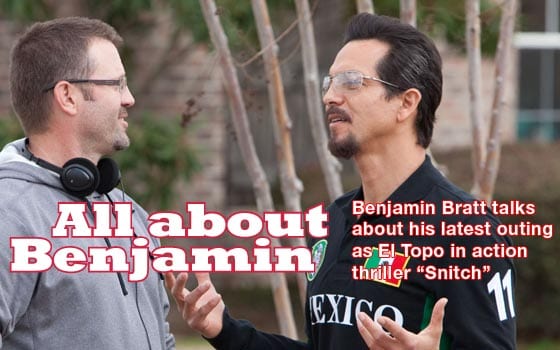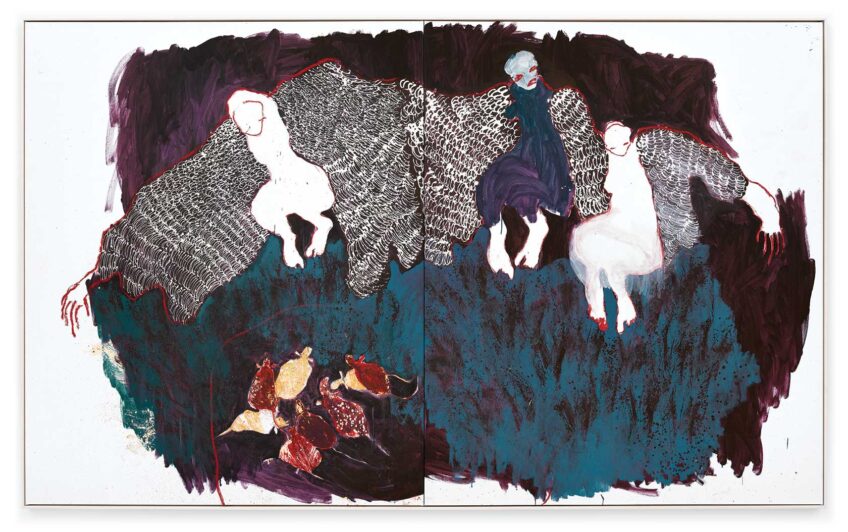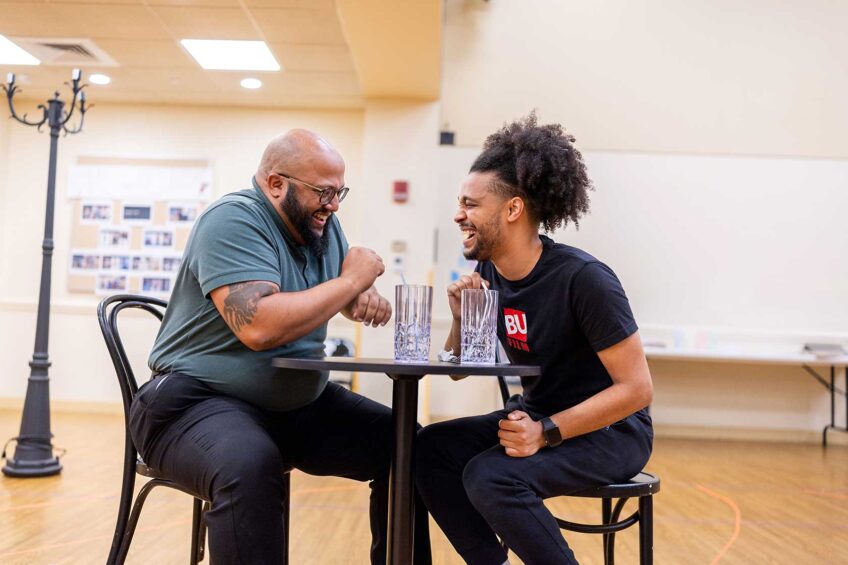

Author: courtesy of www.snitch-movie.comBratt as cartel kingpin Juan Carlos ‘El Topo’ Pintera in action thriller “Snitch.”

Born in San Francisco on Dec. 16, 1963, Benjamin Bratt’s career has successfully spanned movie and television for over 25 years. His résumé includes the critically acclaimed “Piñero,” a powerful portrayal of poet-playwright-actor Miguel Piñero; Steven Soderbergh’s “Traffic”; and “The Woodsman,” a festival and critical favorite starring Kevin Bacon.
Television audiences recognize Bratt from his award-winning role as Detective Rey Curtis on NBC’s long-running drama “Law and Order.” He also starred in AandE’s miniseries “The Andromeda Strain,” based on the novel by Michael Crichton, which garnered seven Emmy nominations. Additionally, he served as series lead as well as producer on AandE’s “The Cleaner.”
A veteran of dozens of films, Benjamin’s other work includes “The River Wild” opposite Meryl Streep; “Blood In, Blood Out” with director Taylor Hackford; “Clear and Present Danger” with Harrison Ford; “Abandon” opposite Katie Holmes and the screen adaption of Nobel Prize-winning author Gabriel Garcia Marquez’s “Love in the Time of Cholera.”
In “La Mission,” Benjamin re-teamed with his writer/director/producer brother Peter Bratt to star in and produce a story which recalls the culture, people and beliefs of their childhood in the Mission district of San Francisco. He and Peter joined with producer Alpita Patel to form 5 Stick Films, a production company geared toward films of conscience, to tell stories with passion, vision and personal reflection.
Bratt is married to actress Talisa Soto Bratt. They live in Los Angeles with their two children, Mateo and Sophia.
What interested you in “Snitch”?
A few things, actually. I really liked the script. [Director] Ric Waugh happens to be an old friend of mine. We sort of came up together. His father, the great Fred Waugh, was the stunt coordinator on the first series I ever did, “Nasty Boys.” And Rick, believe it or not, was a kid who happened to be a great stuntman. It was a family business for him and his father and his brother.
Since we became friends way back when, I didn’t want to pass up the opportunity to come full circle working together again, but in an actor/director relationship. You might look at my part on the page and think, hmm, it’s a little small, and maybe not worth flying to Shreveport three times for just a few days’ worth of work. But the truth of the matter is I was excited to reconnect with him and also to play a part that certainly looms large over the story as a kind of ominous presence of danger, not unlike the role I played in “Traffic.”
When you play a hardcore bad guy like El Topo, is it a different mindset from when you play someone in law enforcement?
One might think so, but, surprisingly, the answer is “No.” I think most law enforcement people would tell you that there’s a very fine line between going one way or the other. On some level, as a career criminal, you’re a soldier. And certainly a police officer also has that soldier’s “us or them” mentality where the delineation between black and white is very clear.
My brother-in-law happens to be a detective on the East Coast. Having played a man in uniform several times, it’s always been a fascination for me. And I’ve spent hours talking to him over the years about the mindset of someone on the force, and it’s very clear. There’s no gray area in law enforcement. Evil exists in the world and it must be dealt with. And those on the side of good can feel righteous in their approach to eliminating evil. There’s no ambiguity there.
So, in the case of someone like El Topo, it’s not so much that he’s evil, but that the director is very keen to point out that he’s a man, a father, just as Dwayne Johnson’s character is. He has a job to do. He’s a businessman. Yes, he happens to sell drugs but, at the end of the day, he has to get the job done and take care of his family. I thought that was a unique take on this kind of villain.
Although we don’t get to spend much time with him, we get the sense that, yes, he’s capable of a great deal of violence, and yet, he’s just taking care of business.
What message do you think people will take away from “Snitch”?
I think the message that resonates most, and definitely the one that resonates with me and my wife as parents, is that there is no length that is too great to go to in order to protect your child. So, it’s fascinating to see how Dwayne Johnson, who is a formidable, mountain of a man, is reduced to feeling powerless when his son is suddenly in danger. It’s very compelling to watch the process of his coming to terms with what he has to do to get his boy released from jail.
How difficult is it to switch from doing a TV role to a big screen movie role? Which do you prefer?
I’d have to say that acting is acting, and that you always want to convey a sense of honesty and authenticity. So, I approach both in a similar way. For me, though, the great joy of doing this film was that there was so much gravitas to my role. In fact, I feel that I do my best work when the stakes are a lot higher, where I play the heavy, like I did in “La Mission,” a movie my brother directed.
Is there a remake of a classic you’d like to do with a role for yourself in mind?
I think every actor would like to be in some version of “The Godfather.” So, if they’re doing “Godfather IV,” sign me up. [Laughs]
How has acting changed for you over the years and how have you managed to mix comedy with drama so successfully?
Good question. I think that I was hungrier when I was younger, and it showed in my work on some level. As I’ve gotten older, I’ve grown a lot more assured about what I’m doing. I call upon my training, my research and my life experience. That’s the good news about getting older. Your life experience really informs the work that you do in front of the camera, and even more so onstage. That comfort level enables an actor to be more at ease. Being a greater risk-taker comes from the experience of taking on roles, and it shows.






